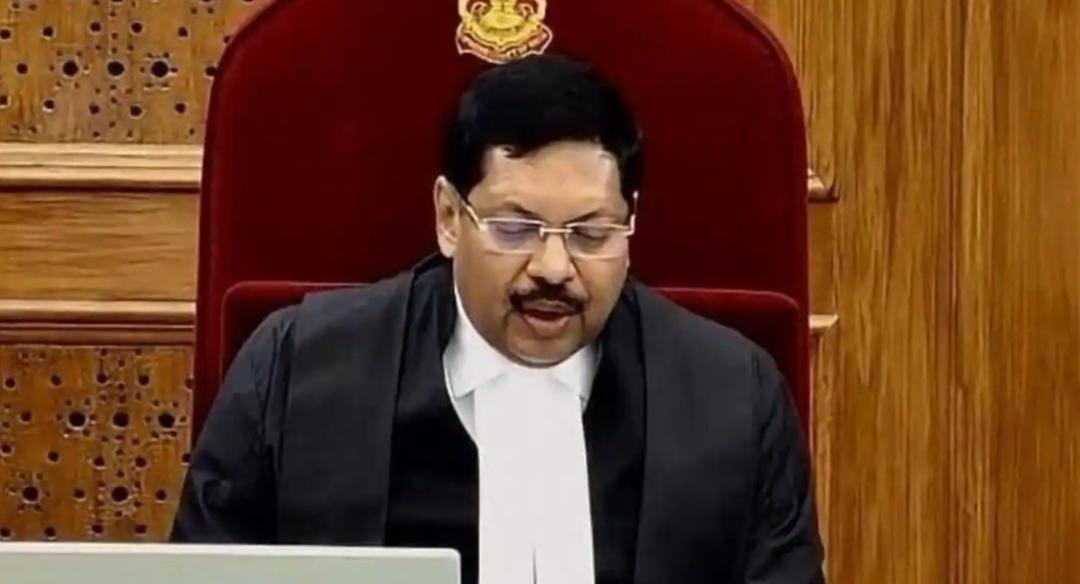
Passing ‘bulldozer order’ was my most important one: CJI Gavai
As the tenure of Chief Justice of India (CJI) BR Gavai comes to an end, he reflected on his most significant judgments during his time in office. In a recent interview, CJI Gavai called his judgment against “bulldozer justice” as his most important one. This statement highlights the significance of the issue and the impact of the judgment on the lives of many individuals.
For those who may not be aware, “bulldozer justice” refers to the practice of demolishing the homes of individuals accused or convicted of a crime, often without due process or adequate notice. This practice has been criticized for being a form of collective punishment, where the entire family is penalized for the actions of one individual. CJI Gavai’s judgment was a significant step towards addressing this issue and upholding the rights of citizens.
“How can a house be demolished just because a person is accused of a crime or convicted of it?” CJI Gavai asked, emphasizing the importance of due process and the rule of law. His judgment recognized that the demolition of homes is a drastic measure that can have severe consequences for the families affected, including women, children, and the elderly. By striking down this practice, CJI Gavai’s judgment has provided a measure of protection for these vulnerable individuals.
The judgment is also significant because it highlights the importance of judicial oversight in ensuring that the rights of citizens are protected. In a country where the rule of law is paramount, it is essential that the judiciary plays an active role in checking the excesses of the executive and ensuring that the rights of citizens are not violated. CJI Gavai’s judgment is a testament to the independence and integrity of the judiciary and its commitment to upholding the Constitution.
As CJI Gavai prepares to retire on November 23, his legacy will be remembered for his significant contributions to the judiciary. He will be succeeded by CJI-designate Justice Surya Kant, who will take over as the new Chief Justice of India on November 24. Justice Kant has a reputation for being a fair and impartial judge, and it is expected that he will continue the tradition of upholding the rule of law and protecting the rights of citizens.
The issue of “bulldozer justice” is not limited to India, and it is a problem that is faced by many countries around the world. The practice of demolishing homes as a form of punishment or collective punishment is a violation of human rights and is often used as a tool of oppression. CJI Gavai’s judgment is an important reminder that the rule of law must be upheld, and that the rights of citizens must be protected at all costs.
In conclusion, CJI Gavai’s judgment against “bulldozer justice” is a significant milestone in the history of the Indian judiciary. It highlights the importance of judicial oversight and the need to protect the rights of citizens. As the country moves forward, it is essential that the judiciary continues to play an active role in upholding the rule of law and ensuring that the rights of citizens are not violated. CJI Gavai’s legacy will be remembered for his contributions to the judiciary, and his judgment will serve as a beacon of hope for those who are fighting for justice and human rights.
The judgment is also a reminder that the judiciary is not just a passive observer of the events that unfold in the country. It is an active participant in shaping the course of history and ensuring that the rights of citizens are protected. As the country faces new challenges and complexities, it is essential that the judiciary continues to play a vital role in upholding the rule of law and protecting the rights of citizens.
In the end, CJI Gavai’s judgment against “bulldozer justice” will be remembered as a significant milestone in the history of the Indian judiciary. It is a testament to the independence and integrity of the judiciary and its commitment to upholding the Constitution. As the country moves forward, it is essential that the judiciary continues to play an active role in shaping the course of history and protecting the rights of citizens.






